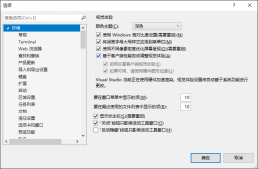前言
C++是一种强类型语言,声明变量时必须明确指出其类型。但是,在实践中,优势我们很难推断出某个表达式的值的类型,尤其是随着模板类型的出现,要想弄明白某些复杂表达式的返回类型就变得更加困难。为了解决这个问题,C++11中引入的auto主要有两种用途:自动类型推断和返回值占位。auto在C++98中的标识临时变量的语义,由于使用极少且多余,在C++11中已被删除。前后两个标准的auto,完全是两个概念。
一、自动类型推断
auto自动类型推断,用于从初始化表达式中推断出变量的数据类型。通过auto的自动类型推断,可以大大简化我们的编程工作。下面是一些使用auto的例子。
|
1
2
3
4
5
6
7
8
9
10
11
12
13
14
15
16
17
18
19
20
21
22
23
24
25
26
27
28
29
30
31
32
33
34
|
#include <vector> #include <map> using namespace std; int main(int argc, char *argv[], char *env[]) { // auto a; // 错误,没有初始化表达式,无法推断出a的类型 // auto int a = 10; // 错误,auto临时变量的语义在C++11中已不存在, 这是旧标准的用法。 // 1. 自动帮助推导类型 auto a = 10; auto c = 'A'; auto s("hello"); // 2. 类型冗长 map<int, map<int,int> > map_; map<int, map<int,int>>::const_iterator itr1 = map_.begin(); const auto itr2 = map_.begin(); auto ptr = []() { std::cout << "hello world" << std::endl; }; return 0; }; // 3. 使用模板技术时,如果某个变量的类型依赖于模板参数, // 不使用auto将很难确定变量的类型(使用auto后,将由编译器自动进行确定)。 template <class T, class U> void Multiply(T t, U u) { auto v = t * u; } |
二、返回值占位
|
1
2
3
4
5
6
|
template <typename T1, typename T2> auto compose(T1 t1, T2 t2) -> decltype(t1 + t2) { return t1+t2; } auto v = compose(2, 3.14); // v's type is double |
三、使用注意事项
1、我们可以使用valatile,pointer(*) ,reference(&) ,rvalue reference(&&) 来修饰auto
|
1
2
3
4
|
auto k = 5; auto* pK = new auto(k); auto** ppK = new auto(&k); const auto n = 6; |
2、用auto声明的变量必须初始化
|
1
|
auto m; // m should be intialized |
3、auto不能与其他类型组合连用
|
1
|
auto int p; // 这是旧auto的做法。 |
4、函数和模板参数不能被声明为auto
|
1
2
3
4
|
void MyFunction(auto parameter){} // no auto as method argument template<auto T> // utter nonsense - not allowed void Fun(T t){} |
5、定义在堆上的变量,使用了auto的表达式必须被初始化
|
1
2
3
4
5
6
7
|
int* p = new auto(0); //fine int* pp = new auto(); // should be initialized auto x = new auto(); // Hmmm ... no intializer auto* y = new auto(9); // Fine. Here y is a int* auto z = new auto(9); //Fine. Here z is a int* (It is not just an int) |
6、以为auto是一个占位符,并不是一个他自己的类型,因此不能用于类型转换或其他一些操作,如sizeof和typeid
|
1
2
3
4
|
int value = 123; auto x2 = (auto)value; // no casting using auto auto x3 = static_cast<auto>(value); // same as above |
7、定义在一个auto序列的变量必须始终推导成同一类型
|
1
|
auto x1 = 5, x2 = 5.0, x3='r'; // This is too much....we cannot combine like this |
8、auto不能自动推导成CV-qualifiers(constant & volatile qualifiers),除非被声明为引用类型
|
1
2
3
4
5
6
7
8
9
|
const int i = 99; auto j = i; // j is int, rather than const int j = 100 // Fine. As j is not constant // Now let us try to have reference auto& k = i; // Now k is const int& k = 100; // Error. k is constant // Similarly with volatile qualifer |
9、auto会退化成指向数组的指针,除非被声明为引用
|
1
2
3
4
5
6
|
int a[9]; auto j = a; cout<<typeid(j).name()<<endl; // This will print int* auto& k = a; cout<<typeid(k).name()<<endl; // This will print int [9] |
总结
以上就是这篇文章的全部内容了,希望本文的内容对大家学习或者使用C++能有一定的帮助,如果有疑问大家可以留言交流。














